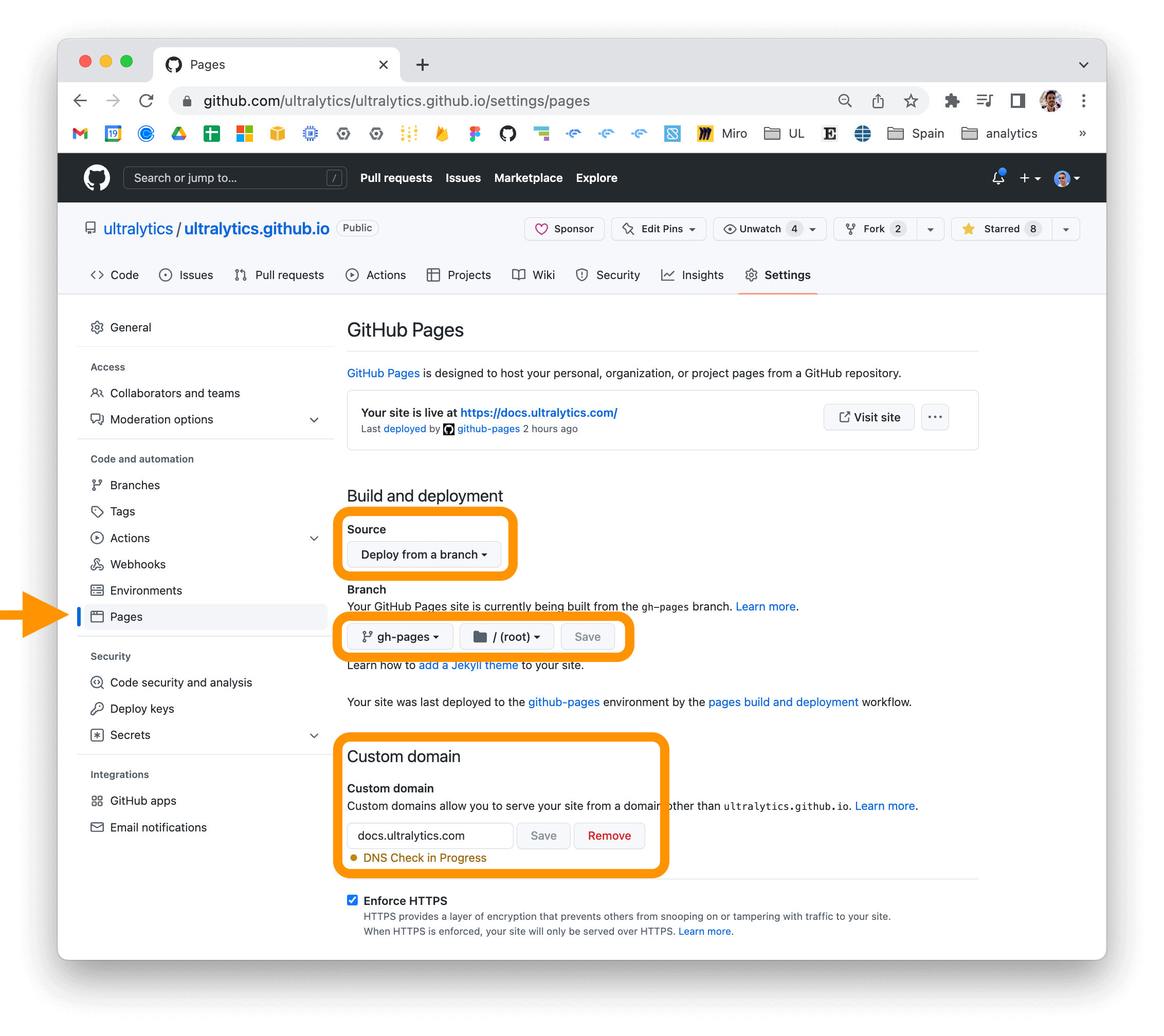Welcome to the Ultralytics Handbook repository! This repository houses the source Markdown files for the official Ultralytics Handbook. It details our mission, vision, values, and internal practices, offering transparency into how Ultralytics operates. Built using the excellent MkDocs Material framework, the Handbook is continuously updated and deployed via GitHub Pages to handbook.ultralytics.com.
This Handbook serves as a living document, evolving alongside Ultralytics' growth. It aims to align team members, contributors, and the wider community with the core principles guiding our work in artificial intelligence (AI) and computer vision. Whether you're new to Ultralytics or a seasoned team member, this resource provides insights into everything from our company philosophy to detailed workflows and operational processes, including our approach to machine learning operations (MLOps).
To install MkDocs and the necessary dependencies for building and developing the Handbook site locally, use the pip package manager:
pip install black mkdocs-material mkdocs-ultralytics-pluginThis command installs MkDocs, the MkDocs Material theme, our custom plugin, and the black code formatter, enabling local development and testing of the Handbook documentation.
Use the following command to build the Handbook site and serve it using a local development server:
mkdocs serveThis starts a local web server with live reloading enabled. Any changes you make to the Markdown source files will automatically trigger a rebuild, and your browser will refresh to show the updates.
mkdocs: The primary command-line tool for interacting with MkDocs.serve: Builds the site and runs a local server, watching for file changes.
To stop the server, press CTRL+C in your terminal.
To deploy the Handbook to GitHub Pages or another hosting platform:
- Ensure your
mkdocs.ymlfile is configured correctly for deployment, including thesite_url. - Run the deployment command:
mkdocs gh-deployThis command builds the static site files and pushes them to the gh-pages branch of your repository, making them live on GitHub Pages. For a custom domain like handbook.ultralytics.com, configure the "Custom domain" settings in your GitHub repository's Pages section.
For more detailed instructions, consult the official MkDocs guide on deploying documentation.
We warmly welcome contributions to the Ultralytics Handbook! Your input, whether it's improving existing documentation, fixing typos, or suggesting new sections, is highly valuable to our open-source efforts. Please review our Contributing Guide for detailed information on how to get started. We appreciate the support from our community!
The Ultralytics Handbook is distributed under two licenses to accommodate different use cases:
- AGPL-3.0 License: Ideal for academic research and open-source projects. See the LICENSE file for full details.
- Enterprise License: Designed for commercial applications requiring integration of Ultralytics software and AI models. Visit Ultralytics Licensing to learn more.
For reporting issues, bugs, or suggesting features related to the Handbook, please use the GitHub Issues tracker. For broader discussions, questions about Ultralytics projects like Ultralytics YOLO, or to connect with the team and community, join our Discord server.















